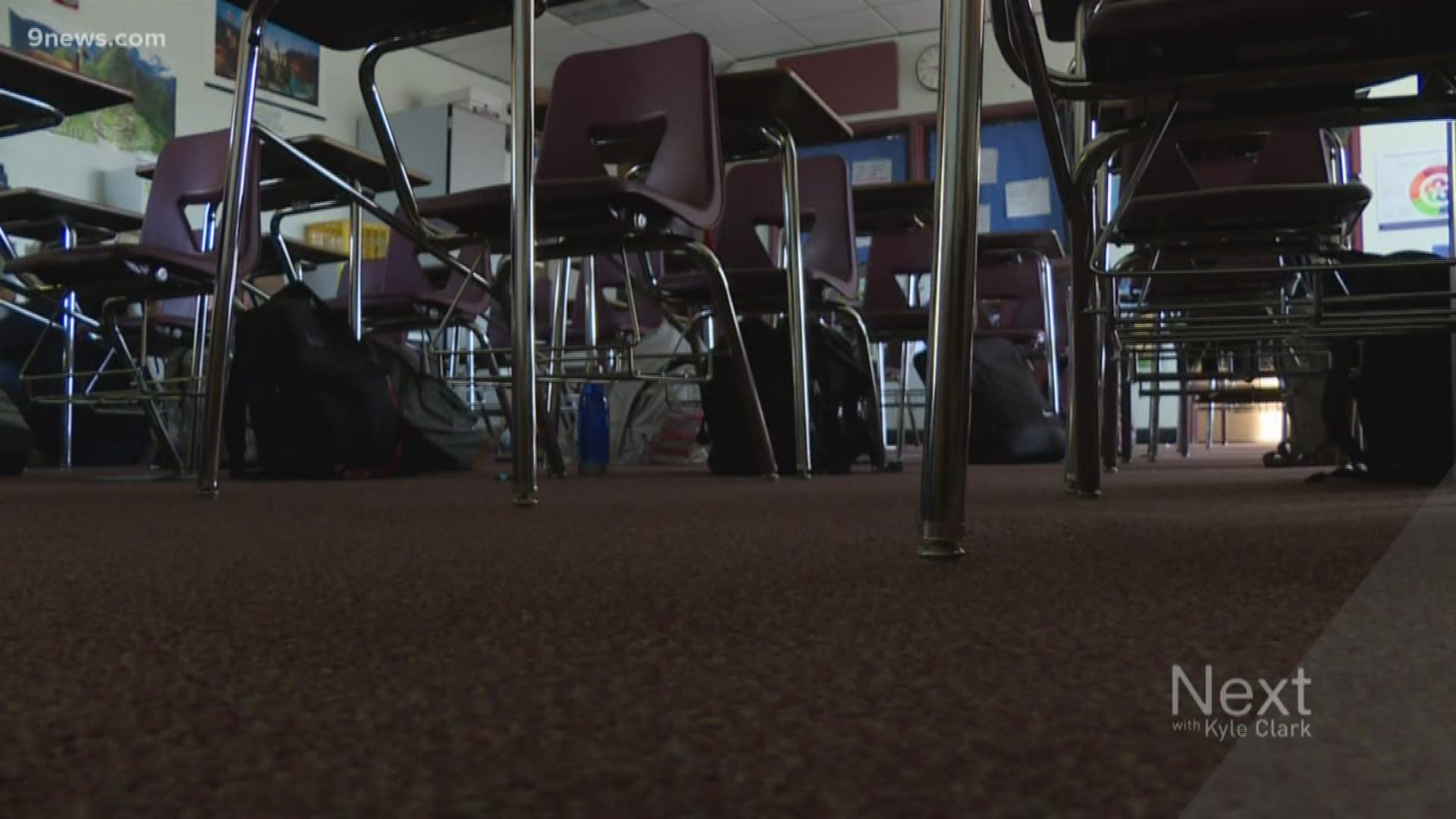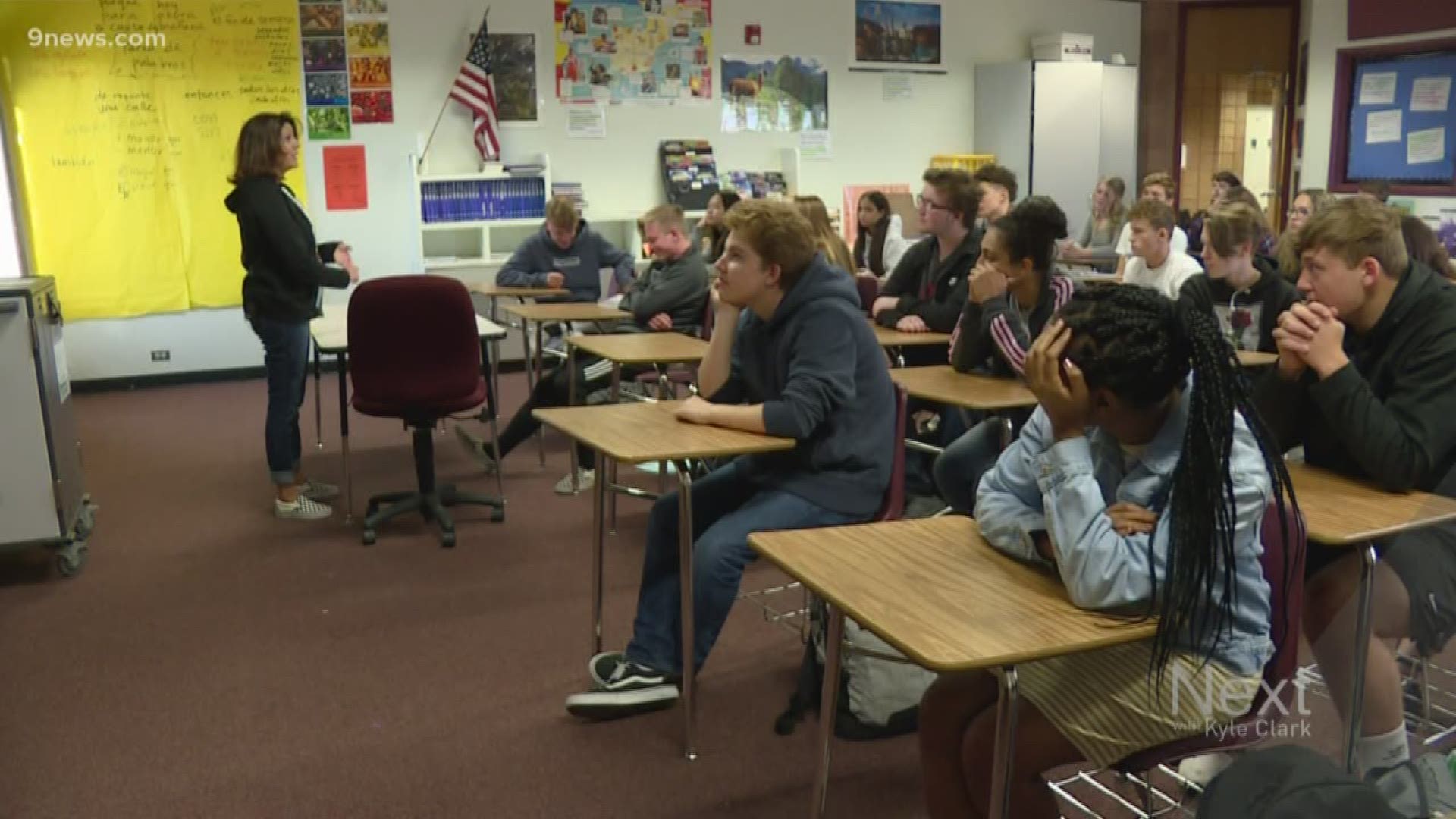DENVER — Schools understand that reading, writing and arithmetic doesn't matter if students aren't safe.
Safe from hurting themselves, each other or from intruders.
School safety has been the off-session homework assignment for state lawmakers.
The interim School Safety Committee met for the last time on Thursday and supported five bills that will be introduced when the legislature meets in January.
- "Train the Trainer"
- Behavior health training for educators
- Update Safe2Tell
- It's been 20 years since the state created the anonymous reporting system
- Working Group on School Safety
- Multiple agencies working to streamline lockdown drills, best practices, transparency and agency coordination
- Services for Juveniles with Severe Behavioral Health Conditions
- Work group to research behavioral health treatment for youth
- Mental Health Days for Students
- Require school districts to update policies to recognize mental health days as excused absences
"This statute has not been updated since 1963. And during that time, mental illness or behavioral health was not considered even for health insurance coverage, so it's time that we remove this stigma that's associated with kids that might have an issue dealing with some type of sadness," said Sen. Rhonda Fields (D-Aurora).
Areas that did not receive consensus from the school safety committee included:
- Additional suicide prevention resources for students
- New gun laws
- Arming people in schools
- New gun restrictions
- Uniform school safety drill for districts statewide
"Right now, across the state of Colorado, we have different school districts doing different things, and if you're a substitute and you're running in between different districts, you might not know the protocol for that school," said Fields.
Recently, Horizon High School in Adams 12 held an announced school safety drill.
The drill was based on protocol created by The I Luv U Guys Foundation, started by Ellen and John-Michael Keyes after their daughter, Emily, was killed at Platte Canyon High School in 2006.
"One of the things we like to talk about is it isn't simply hiding, it's remaining out of sight, and I think that that distinction is important. Hiding is a passive thing, remaining out of sight is active," said John-Michael Keyes.
The lockdown protocol calls for "Locks. Lights. Out of sight."
Students are shown a video before the drill that teaches them why they're doing what they're doing.
"That's one of the things we want to talk to students about is how to be proactive in these situations," said Keyes.
"We decided that there needed to be a better way to do our drills in schools, and a way to start to educate and empower our kids, so that they would take our drills seriously and understand why we do the drills," said Adams 12 Chief Operating Officer Pat Hamilton.
Hamilton helped create the protocol used by Adams 12 and the I Luv U Guys Foundation.
"When we would go into classes like you've seen today, we would find kids not sitting in their right spot, they weren't doing the right things, they would be talking, they would be joking around, so they were just not taking the drills seriously. That's because, as adults, we had not told them why we wanted them to do these things and these drills," said Hamilton. "Once we started to educate them and tell them 'why,' they all started to take these drills much more seriously."
"Even the kids in high school, some of the kids are like, 'why are we doing this?' It's like, 'well, you need to stay out of sight of whoever is causing this lockdown,'" said Horizon senior Jacob Loomis.
He said this recent drill was his seventh since his freshman year. Horizon does one announced drill and an unannounced drill each year.
"In a drill, we're going to perform the actions in order to create the muscle memory," said Keyes. "I use an example of a fire drill. When we do a fire drill, we don't light trash cans on fire in the hallway. Similarly, when we're doing a lockdown drill, we don't need to simulate events to create that muscle memory."
For freshman Leyla Castillo, the drill was a new method compared to what she was used to at her previous school.
"Sitting with all the lights off. At my old school we never really had every single light off, but it was really dark here, so I wasn't expecting that," said Castillo.
The drill required students to remain hidden, not talking and without using their phones for 20 minutes or more. Thornton Police and Westminster Police went classroom to classroom unlocking doors and letting the students know what was happening. They were told to wait until an announcement that the entire school had been checked.
"Every one of our drills is conducted the same way you saw this one. We always have lots of police officers in our building, and they go and knock on the door, they'll unlock the door, and they will introduce themselves to the students, say who they are, who they're with and then give the students immediate feedback; 'you're doing a good job,' 'you could change this if you need to be a little bit safer' or 'I can see you here, so maybe move to this spot or that spot.' It's that immediate feedback that's another educational opportunity for our students and staff, and I think that also helps our students realize that the drills are serious, and they're meant to teach muscle memory," said Hamilton.
This method is not taught in every Colorado school district. State lawmakers in the School Safety Committee are planning to create a working group that will determine what is the best way to teach lockdown drills in Colorado.
"One of the things I like is the 'Indiana model.' In Indiana, the school mandates that every district have a safety specialist, but then, in Indiana, the Department of Education allows the curriculum to be determined so that as practices change, we aren't constrained by prior legislation," said Keyes.
Regardless of any changes by state lawmakers, local control allows each elected school board to decide what's best for that district's students.
SUGGESTED VIDEOS | Full Episodes of Next with Kyle Clark


